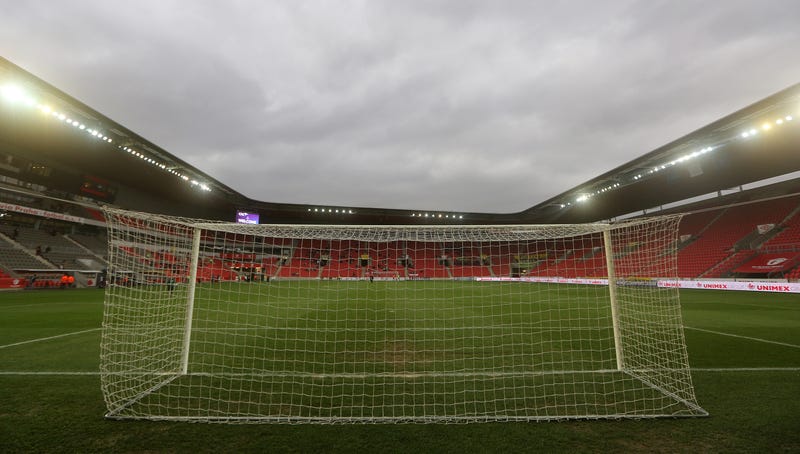Since its inception in 2015, Football Leaks, a website that publishes documents obtained from the hacking of various powerful soccer clubs and organizations, has been the bane of European soccer. The website has helped surface scandals ranging from Cristiano Ronaldo’s rape case and Jose Mourinho’s tax evasion, to more mundane leaks like the transfer agreement between Manchester United and Monaco for Anthony Martial. It also leaked the plans by top European clubs to create an exclusive “super league,” a proposal that has been met with much resistance throughout the continent.
As for who was behind Football Leaks, there wasn’t a Julian Assange-level personality in the public eye, but rumors dating back to 2016 pegged then-27-year-old Rui Pinto, a Portuguese national, as the website’s owner.
This week, Pinto was reportedly arrested in Hungary by Portuguese officials in connection to Football Leaks. Though the authorities did not release the suspect’s name in their communication about the arrest, Portuguese news source RPT revealed him to be Pinto. He is being held in Budapest on charges of extortion and violation of secrecy, among others, and will be extradited to Portugal, where he could face up to 10 years in prison.
According to the BBC, Pinto was the “main suspect in the hacking of emails from Portuguese clubs Benfica, Sporting and Porto,” among other hacks, including multiple on the FIFA database. Between 2016 and 2018, Football Leaks leaked over 70 million documents, according to the European Investigative Collaborations.
Per Belgian source De Standaard, one of Pinto’s lawyers, William Bourdon (who previously represented NSA whistleblower Edward Snowden and Assange) is arguing that the hacker “meets all the criteria for the protection of whistleblowers under European law.” That protection is described by the European Commission thusly:
All forms of retaliation are forbidden and should be sanctioned. If a whistleblower suffers retaliation, he or she should have access to free advice and adequate remedies (for example measures to stop workplace harassment or prevent dismissal). The burden of proof will be reversed in such cases, so that the person or organisation must prove that they are not acting in retaliation against the whistleblower. Whistleblowers will also be protected in judicial proceedings, in particular through an exemption from liability for disclosing the information.
Advertisement
Unfortunately for Pinto, there’s one sticking point: one of the charges that has been levied against him is extortion. As reported by Spanish newspaper Marca in 2016, Pinto’s lawyer at the time, Aníbal Pinto, allegedly reached out to clubs that were hacked in order to procure payment for silence:
The lawyer contacted several Portuguese clubs demanding money in exchange for not going public with the documents. In doing so, Rui and Aníbal allegedly extorted and blackmailed a string of clubs. When these did not pay up, they posted the documents on Football Leaks.
If there was a financial motivation behind the whistleblowing, that would seem to go against the European Commission’s definition of the term, and therefore Pinto would be tried for both extortion and the initial hacking without the protection provided by the standards set forth by the commission.
Source: Read Full Article
